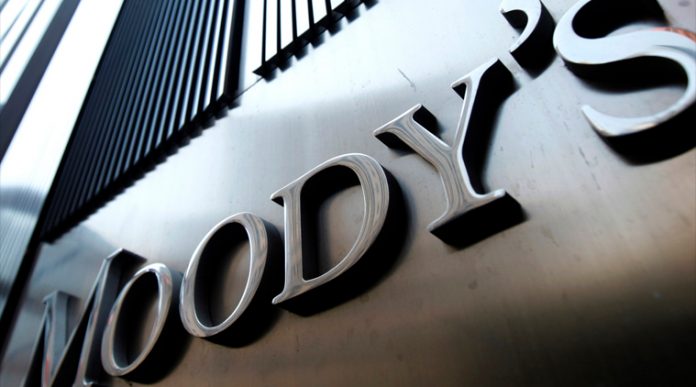LAHORE: A press release issued by Moody Investor’s Service has given a B3 rating to Pakistan’s (B3 stable) US dollar-denominated notes.
The credit rating agency’s B3 issuer for Pakistan indicates a credit profile which balances robust growth potential and a relatively large economy, against low income levels, infrastructure constraints and very low global competitiveness, the report from Moody’s stated.
Moody’s report cited “Pakistan’s economy demonstrates relatively robust GDP growth, limited by supply-side constraints on the economy. While the scale of the economy is relatively large, Pakistan’s per capita income is very low, indicating limited capacity to absorb negative shocks.”
The report added “moving forward, implementation of the CPEC will, over time, partly address supply-side constraints through investment in power generation and transport infrastructure, thereby bolstering Pakistan’s growth potential and competitiveness.”
Furthermore, Moody’s said the country’s institutional strength was enhancing from a very low base which reflected a major grip on reforms under and following Pakistan’s recent IMF program which ended in September 2016.
But the report warned the government’s high debt burden, very narrow revenue base, fragile external payments position and high political risk pressurizes the country’s credit profile.
Pace of project execution would remain slow said Moody’s due to security issues and poor track of public project execution.
Also, the report remarked “key IMF program goals included fiscal deficit reduction, strengthening of the monetary policy framework, resolving constraints in the energy sector, and state-owned enterprise reform. Continued government commitment to implementation of reforms would help reinforce fiscal and monetary policy discipline, thereby preserving recent macroeconomic stability gains and strengthening institutional effectiveness in the future.”
Moody’s further elaborated “On the upside, there is potential for further strengthening in growth beyond our current expectations, as successful implementation of the CPEC project may transform the Pakistani economy by removing infrastructure bottlenecks and stimulating both foreign and domestic investment.
On the downside, the economic benefits of CPEC are still highly uncertain and power supply may continue to constrain growth to a greater extent than we currently envisage. Moreover, the fiscal costs related to the project and, more generally, development spending could raise Pakistan’s debt burden more rapidly and significantly than we expect. In addition, recent indications of renewed increases in external pressure could develop into greater external vulnerability.”




